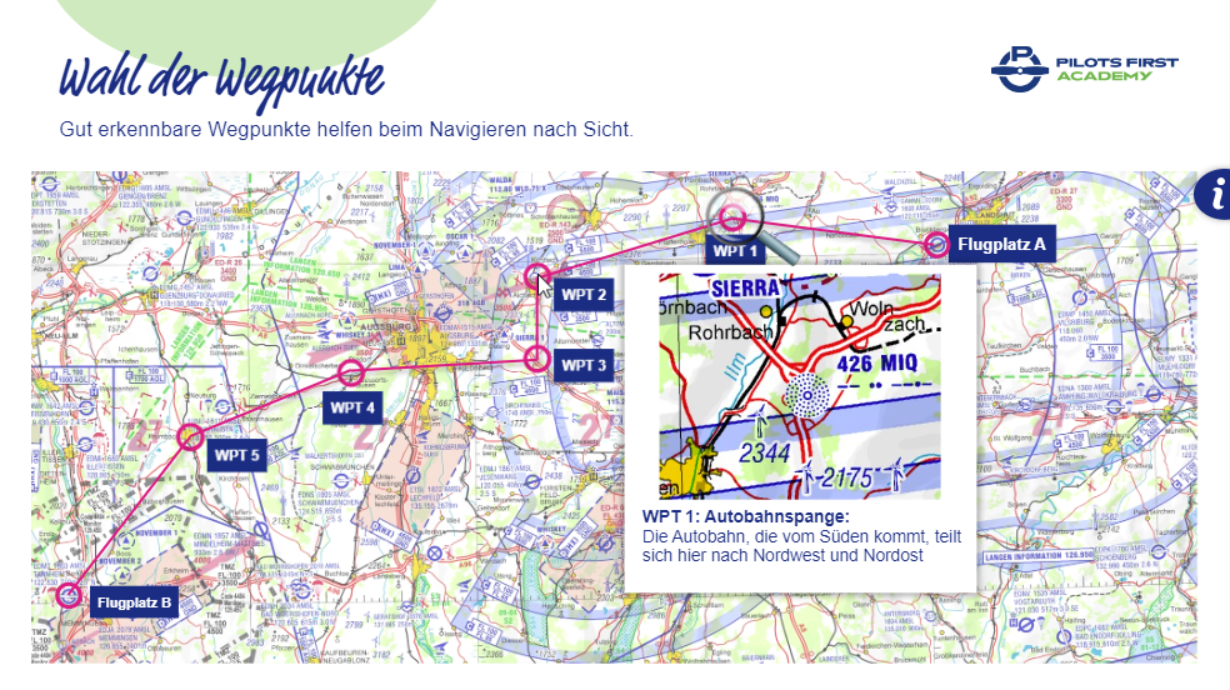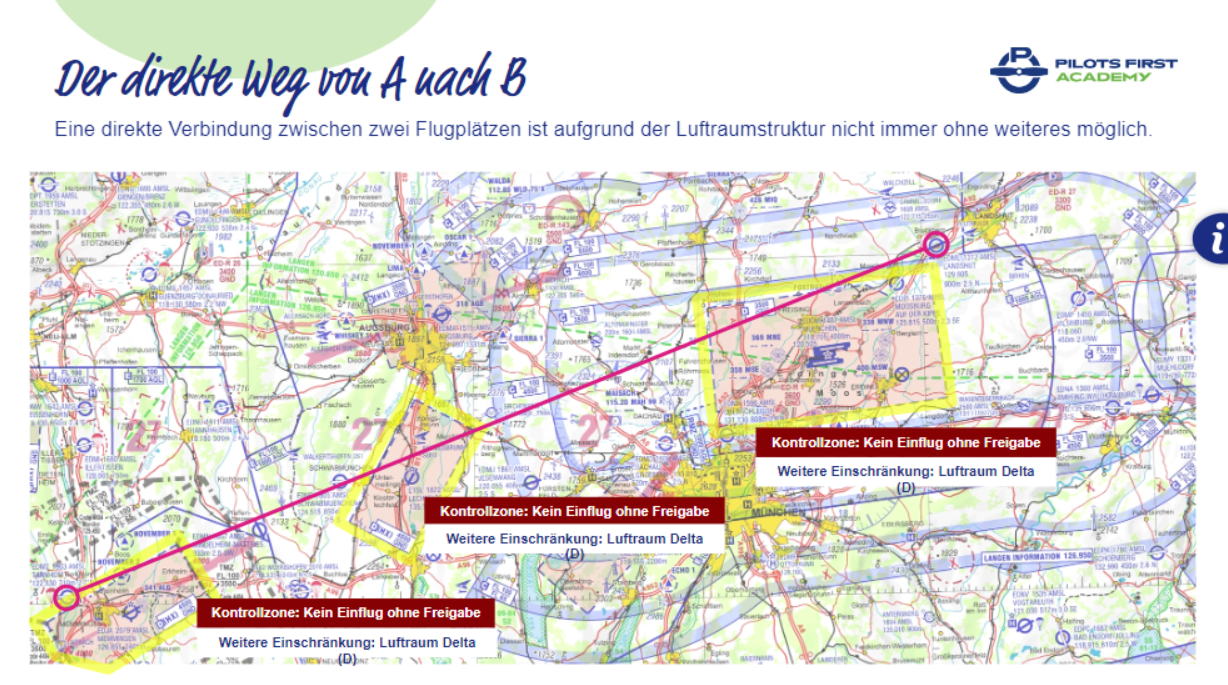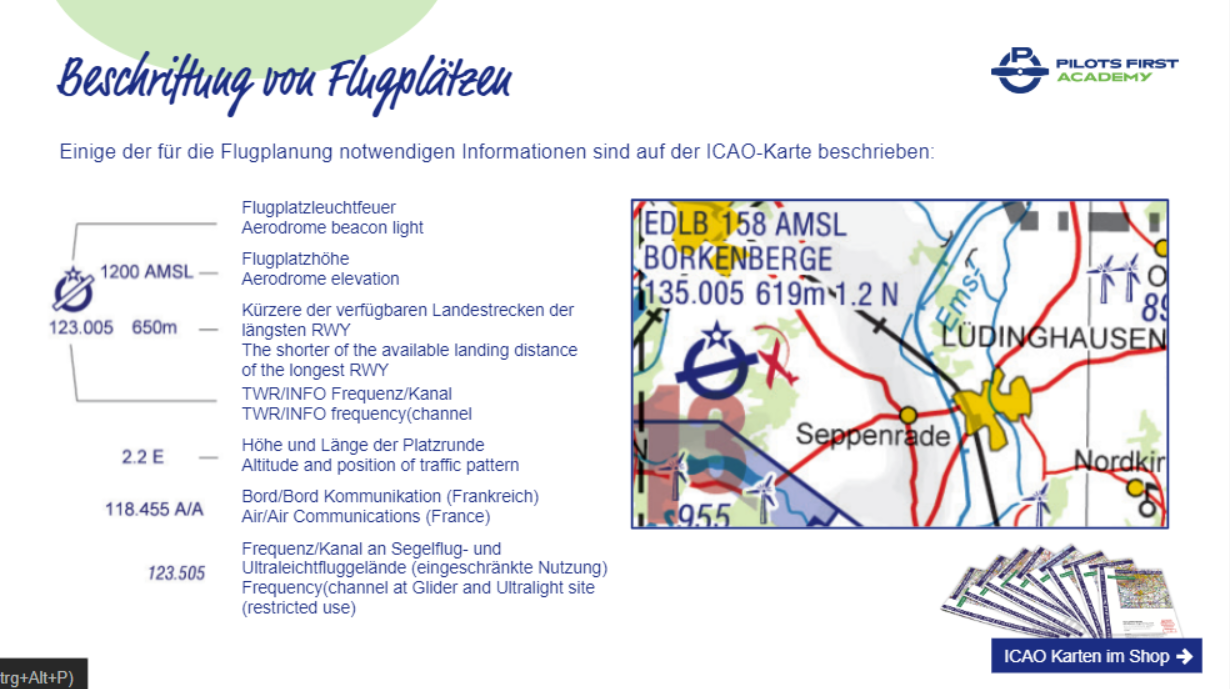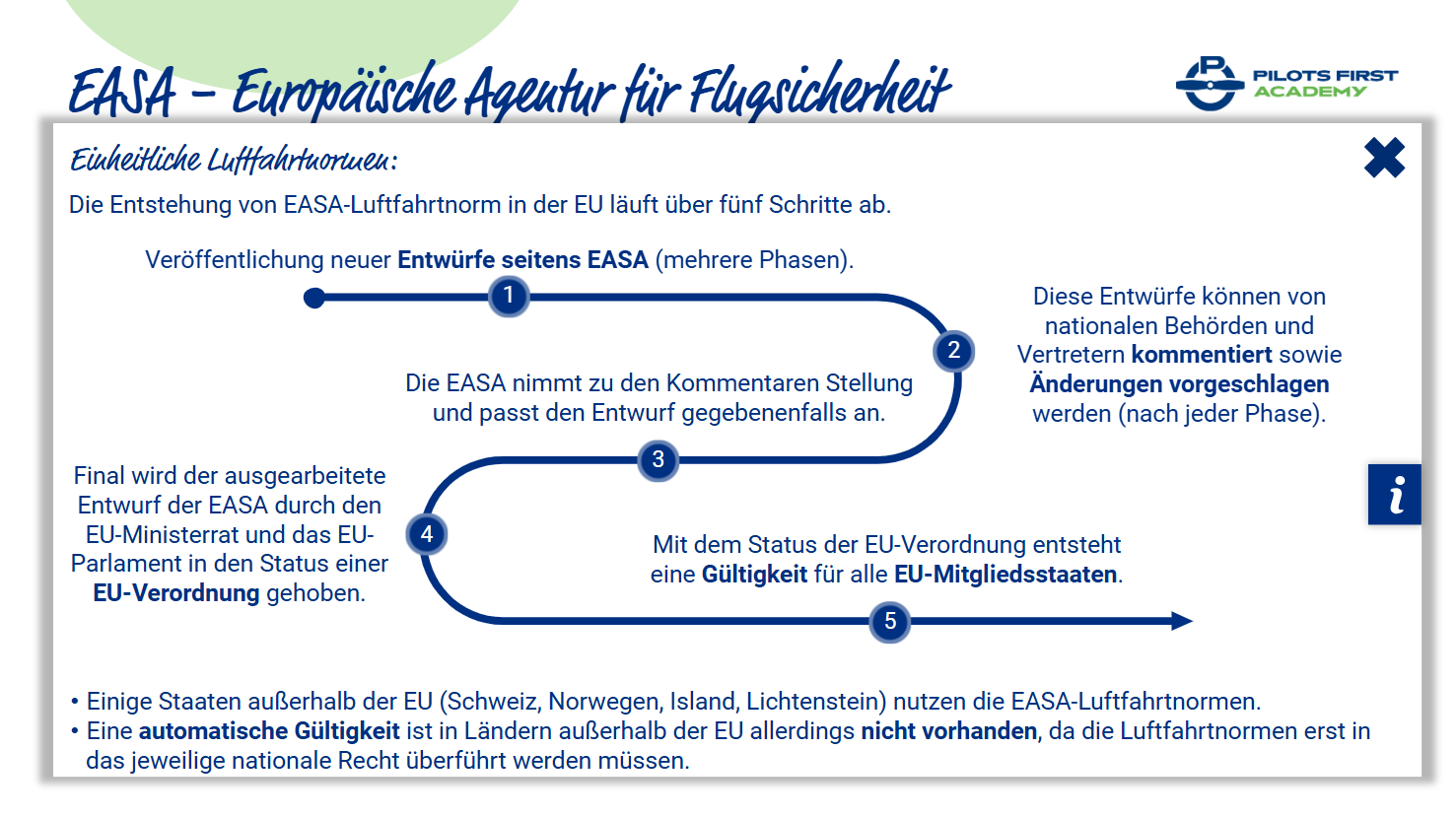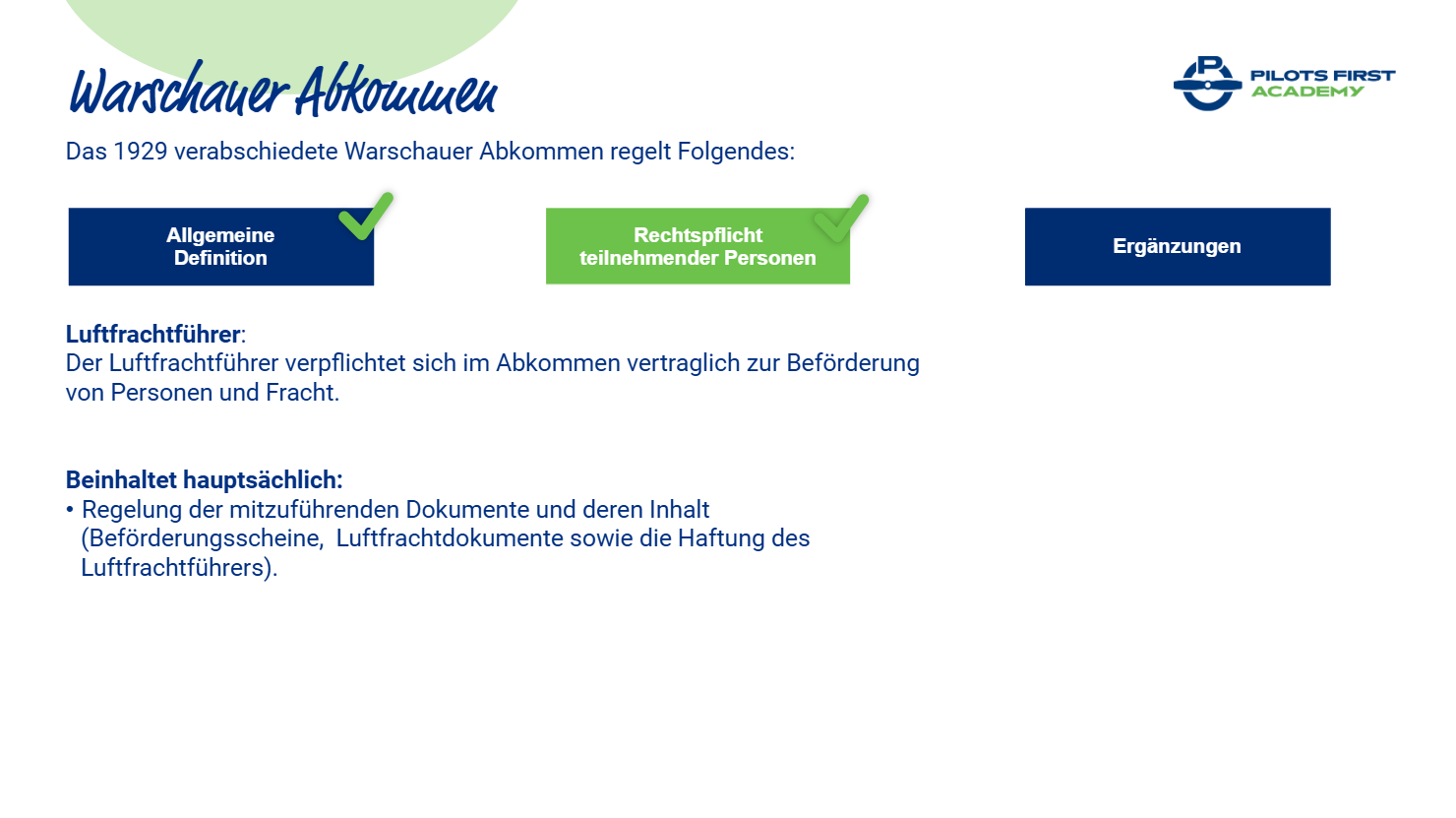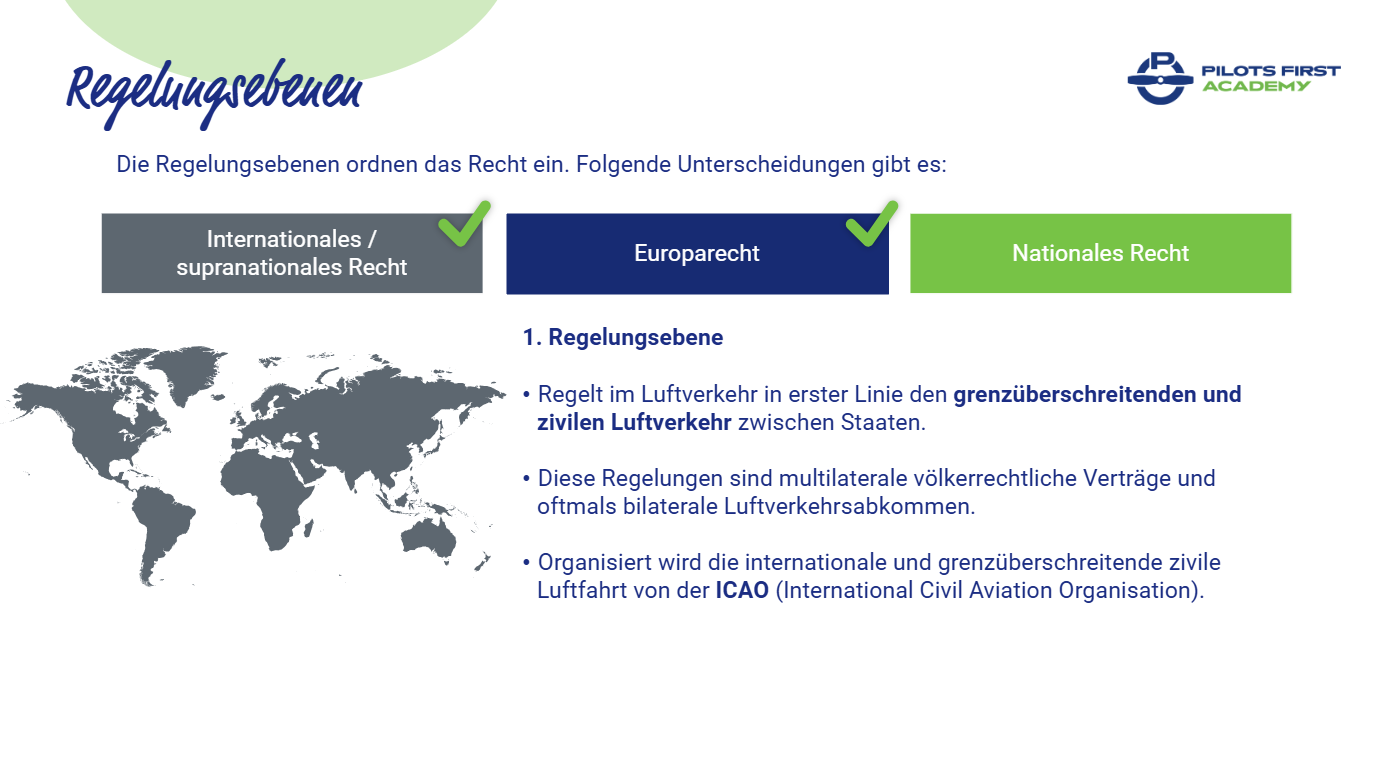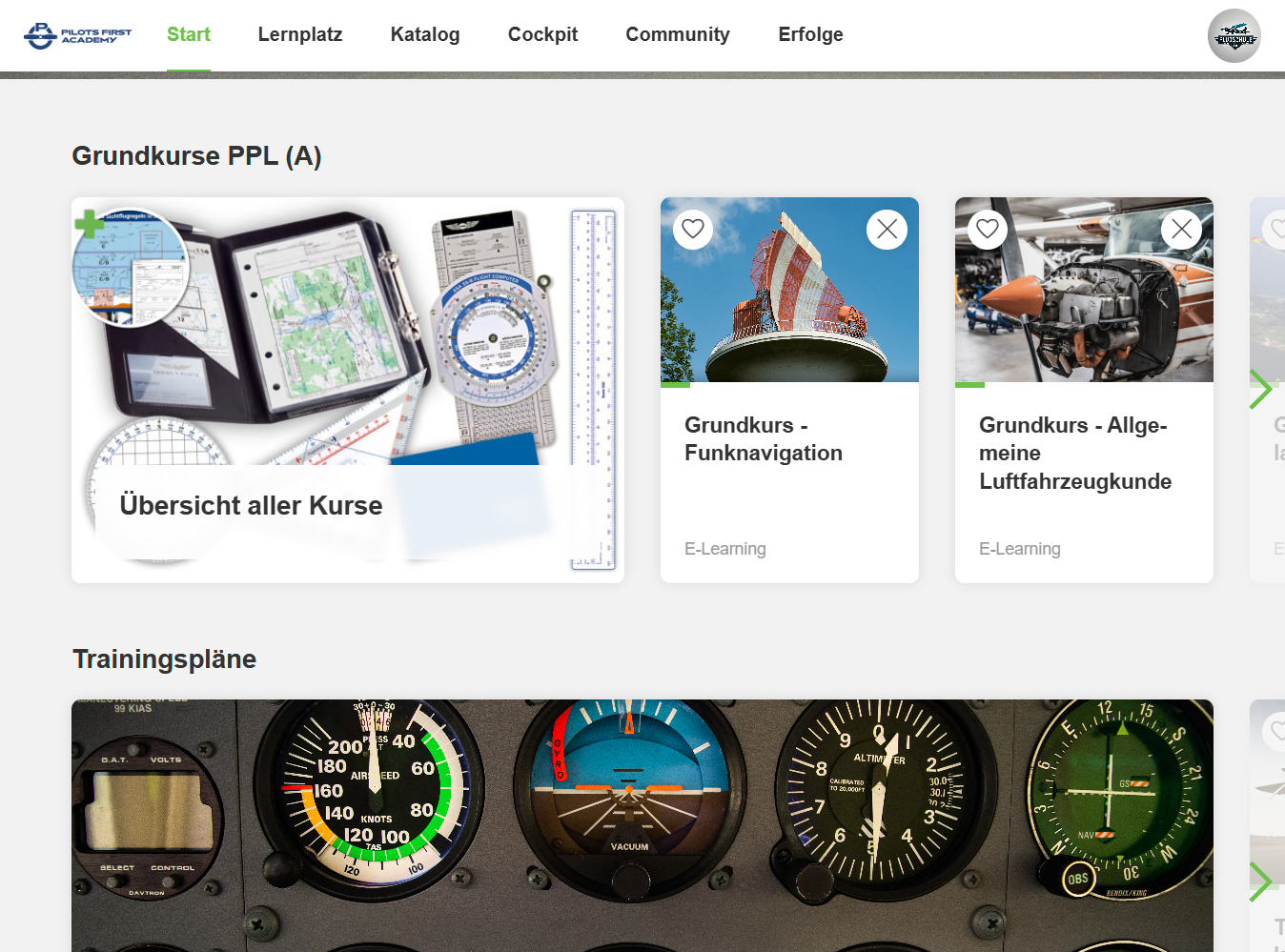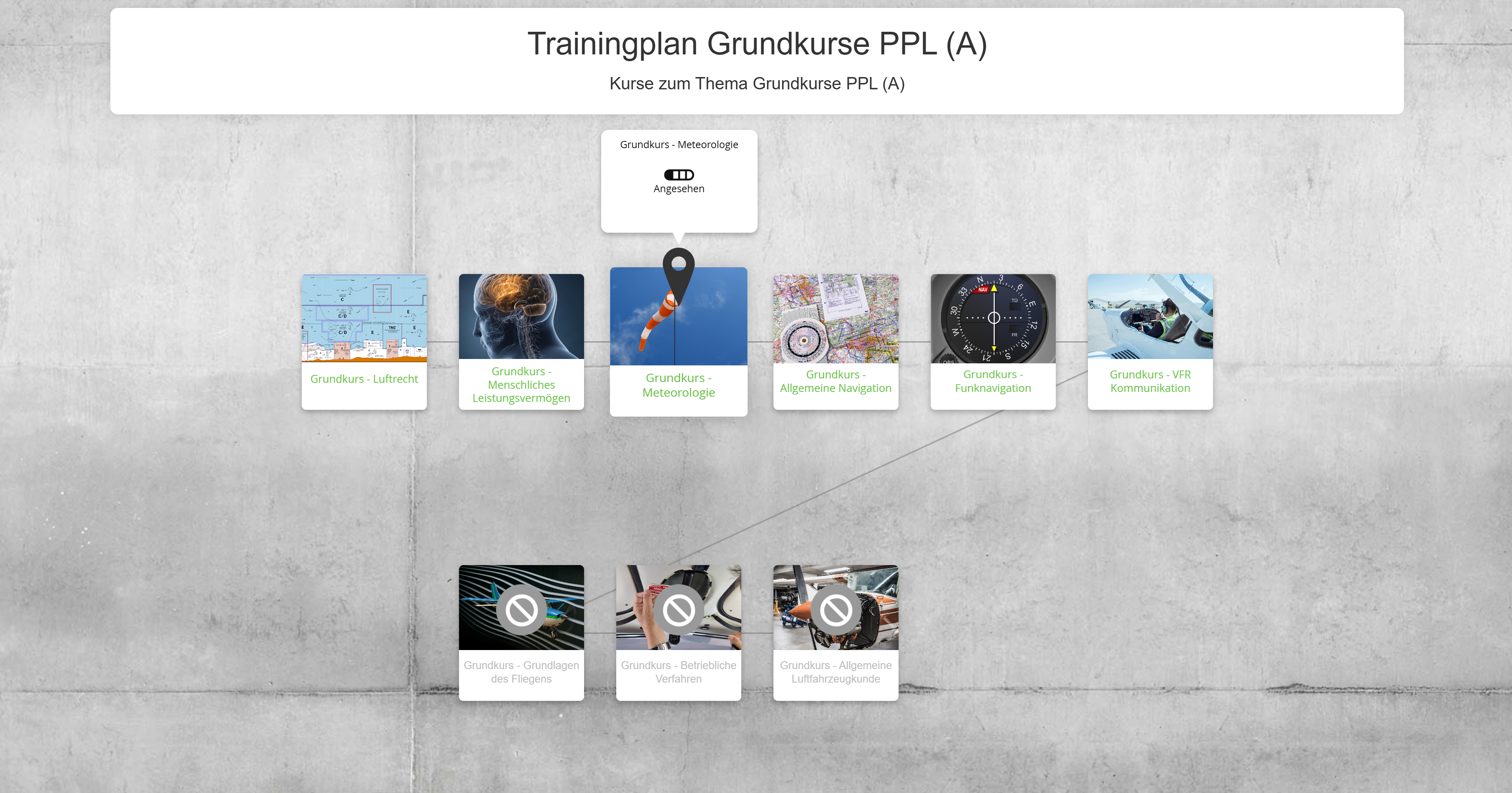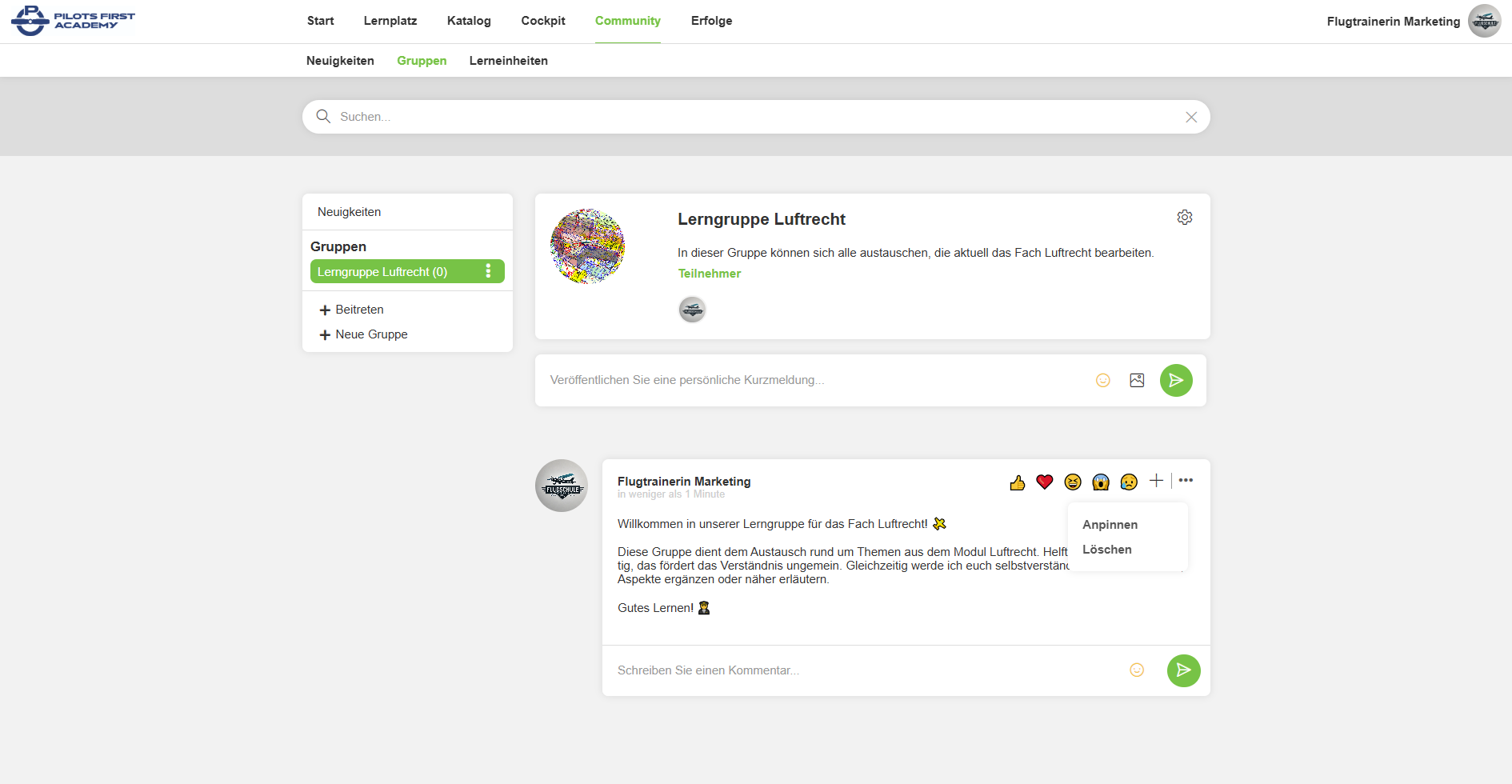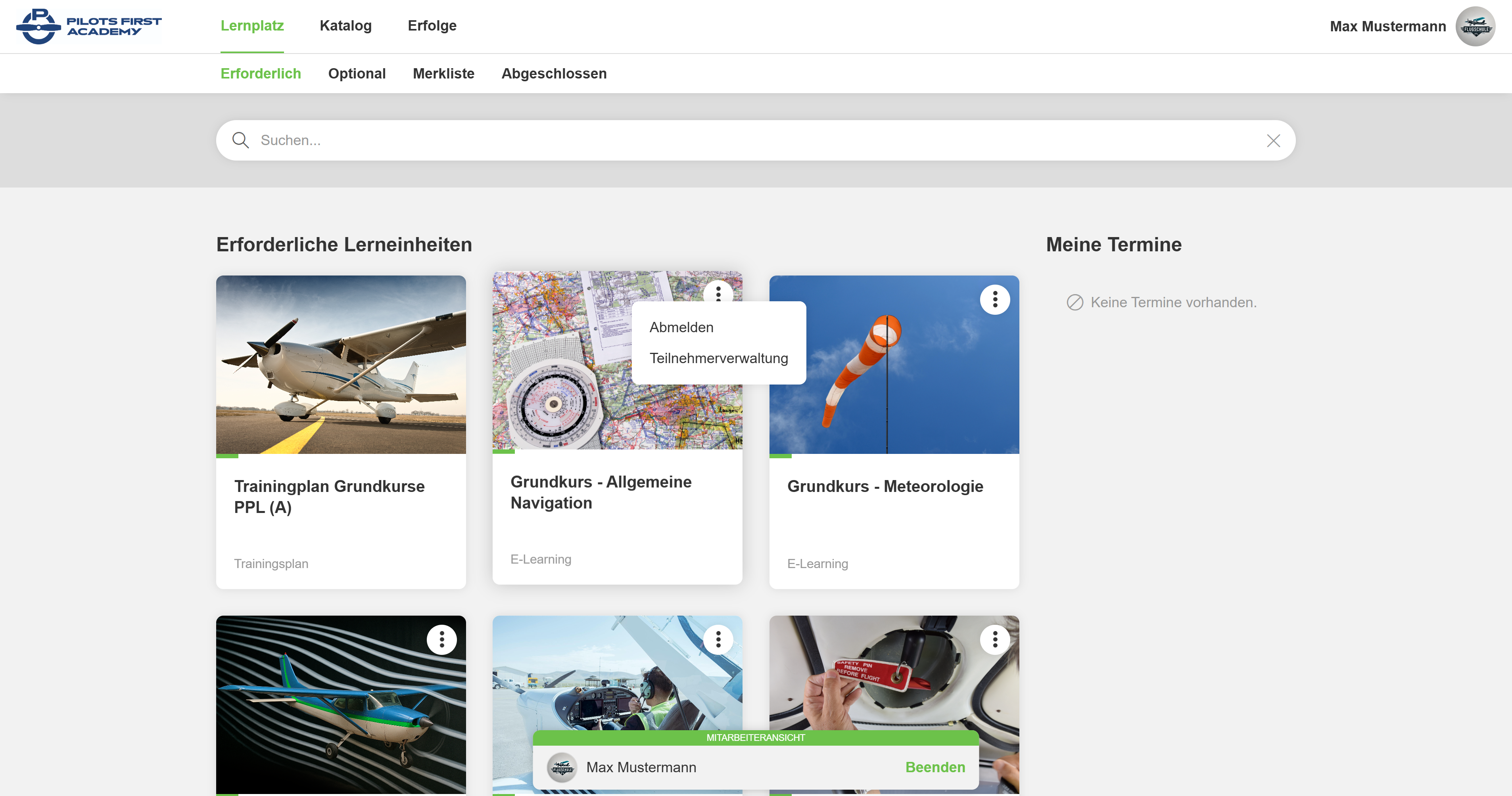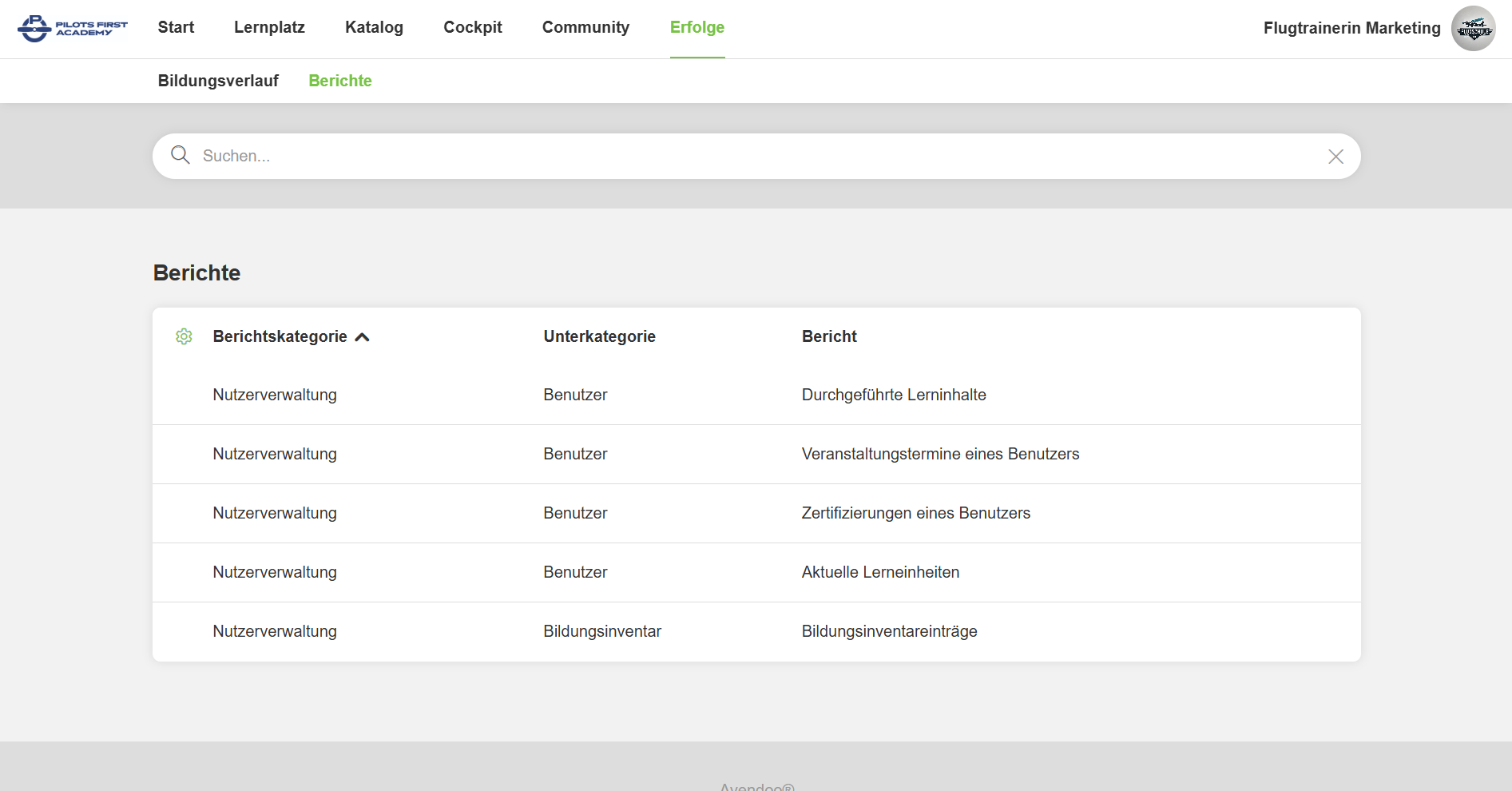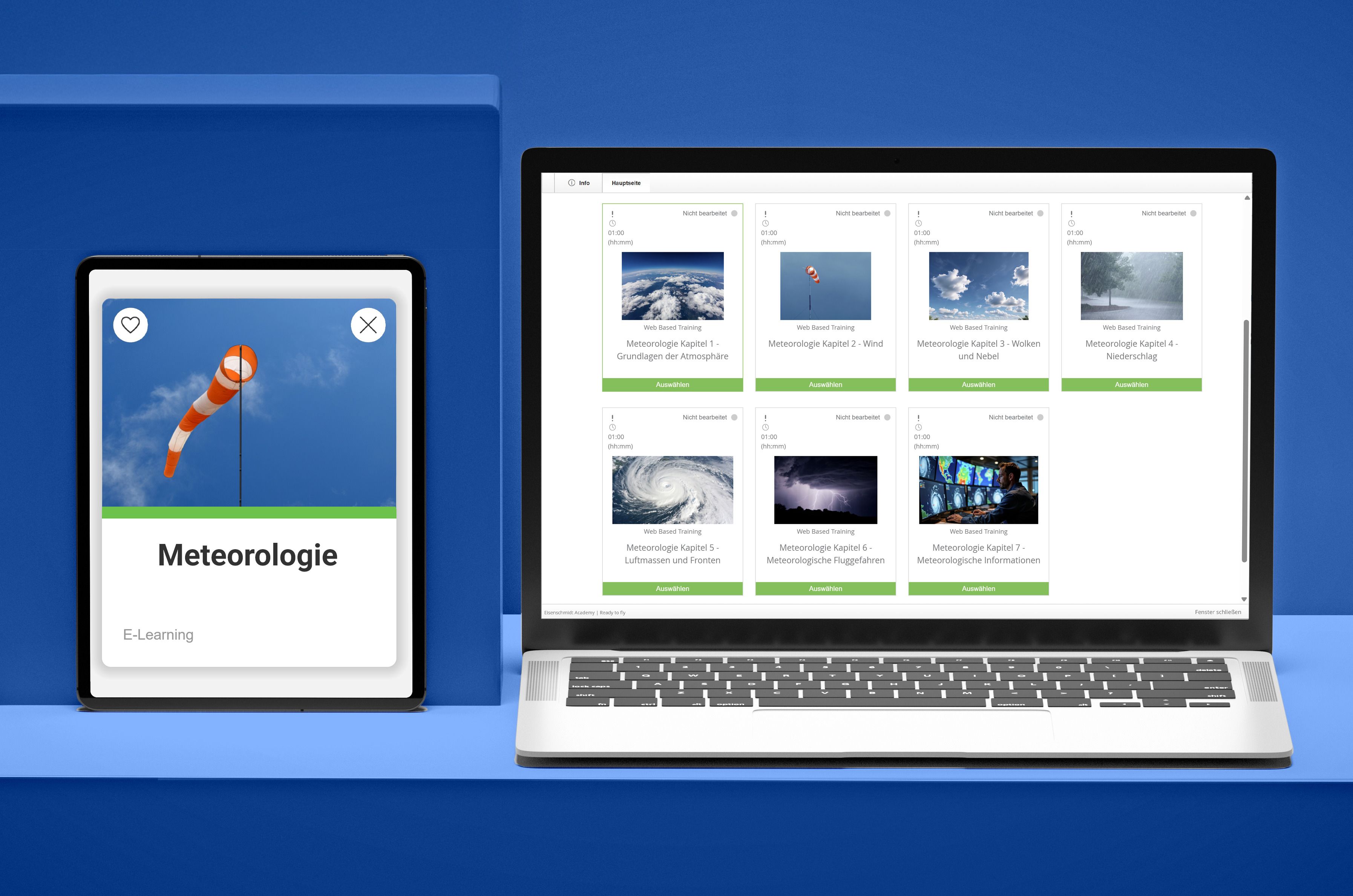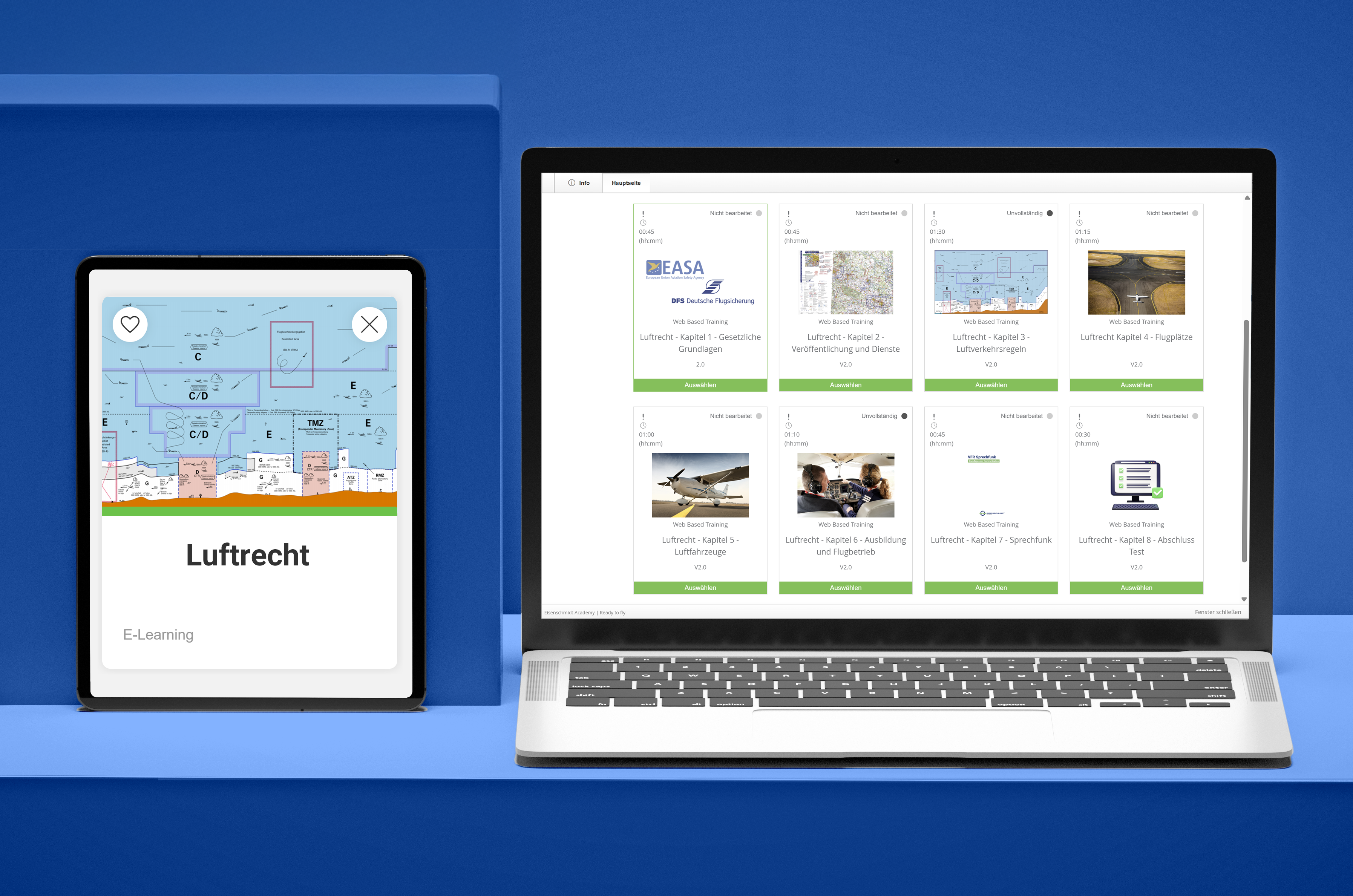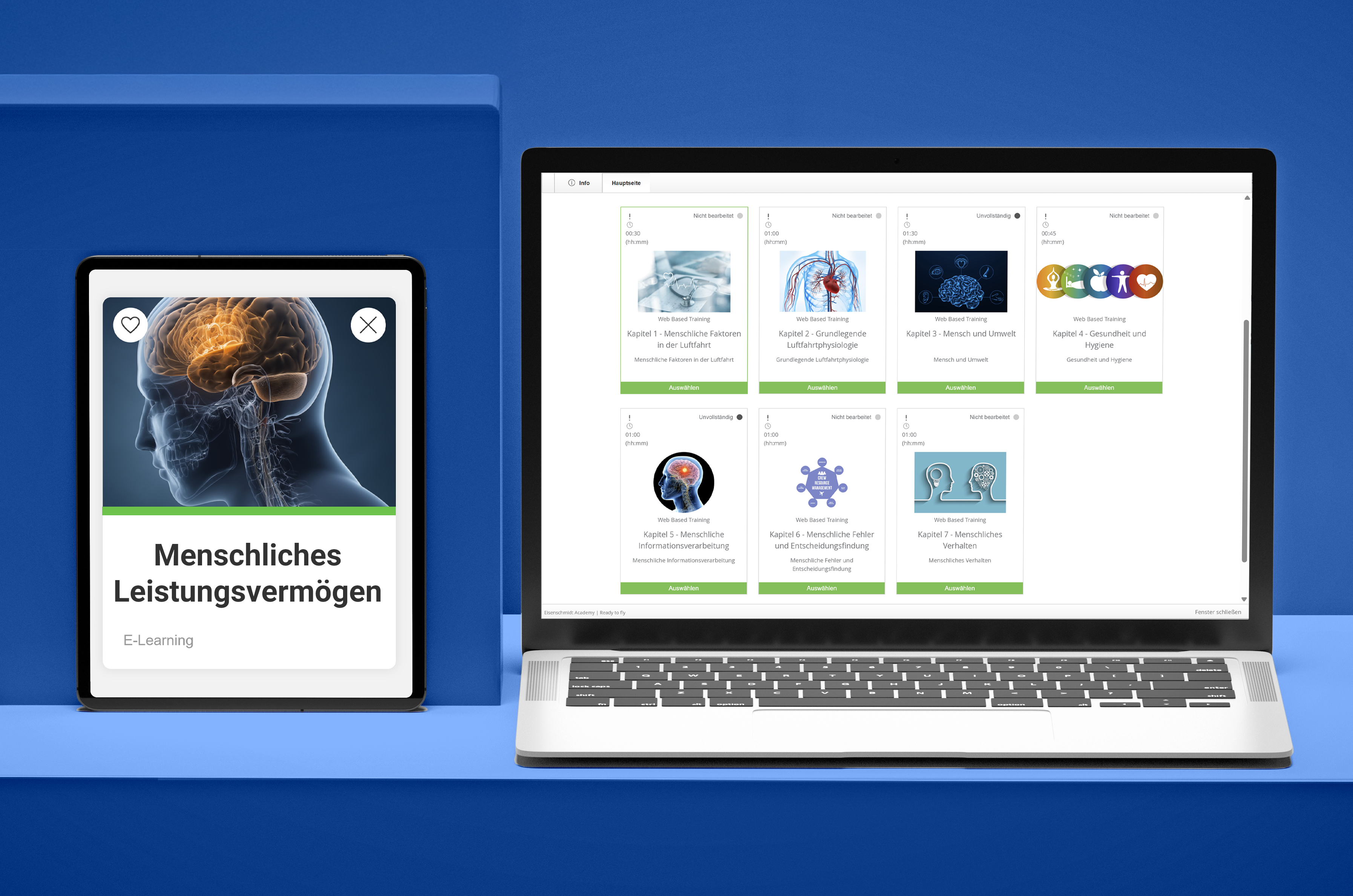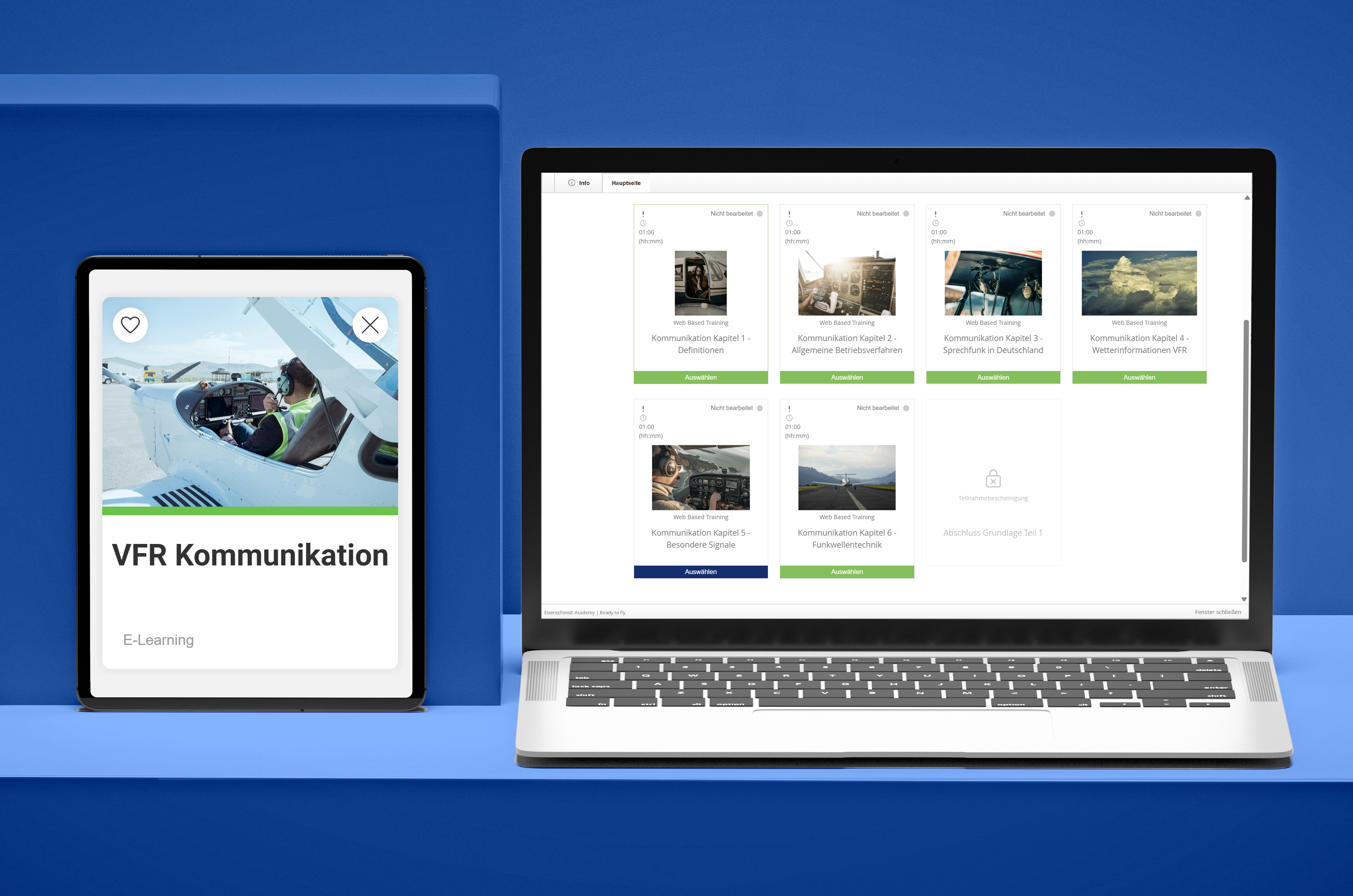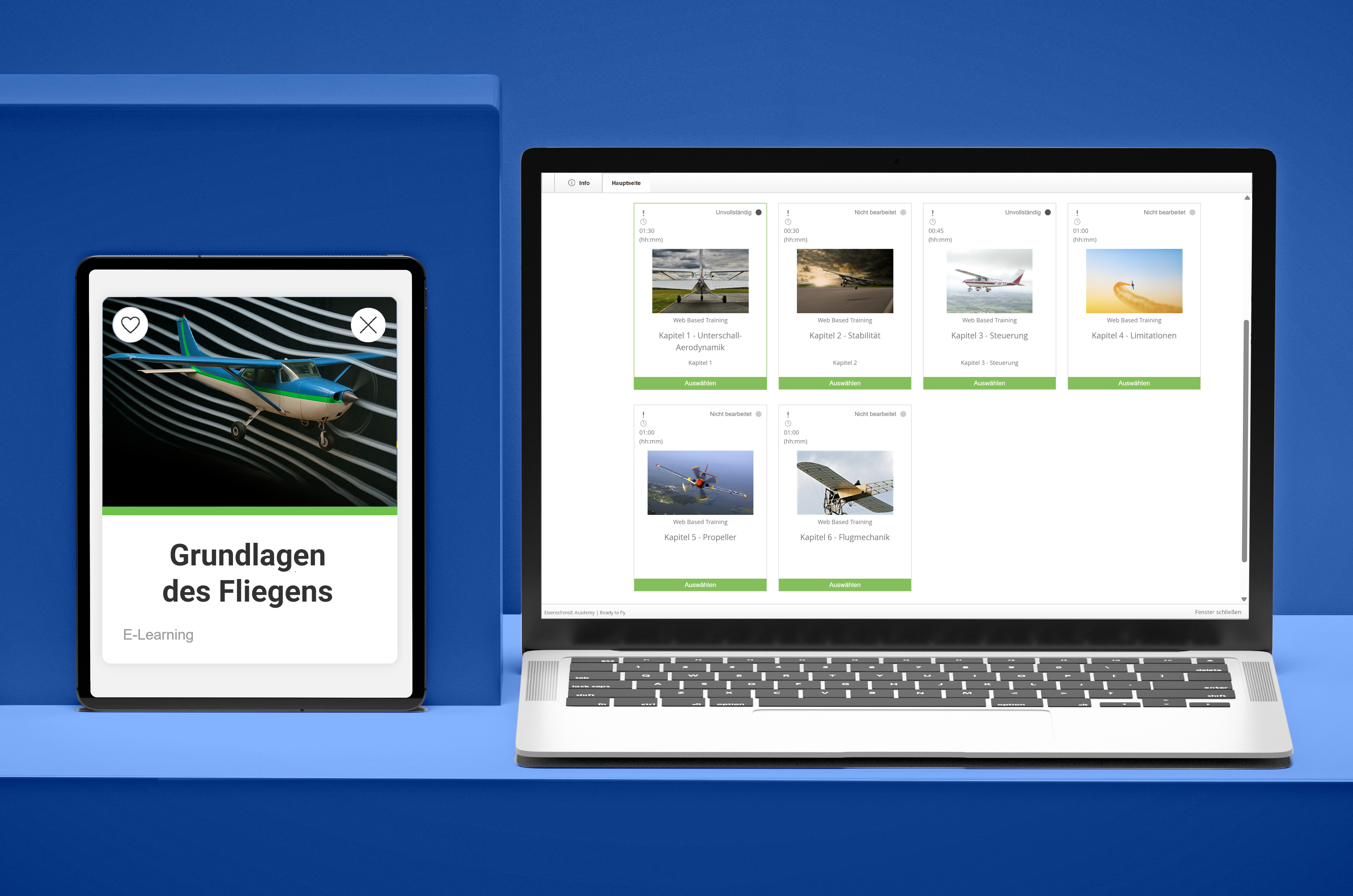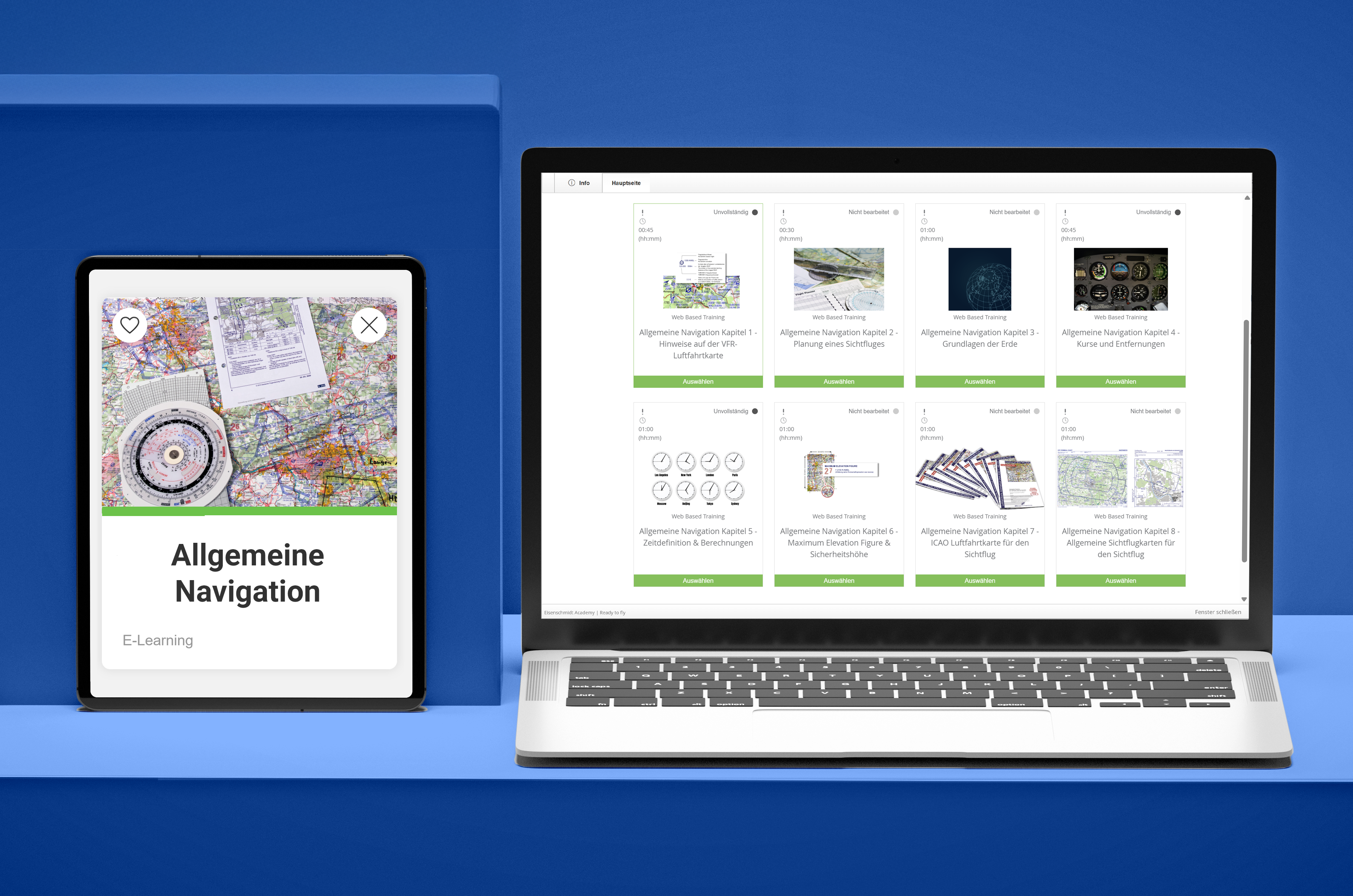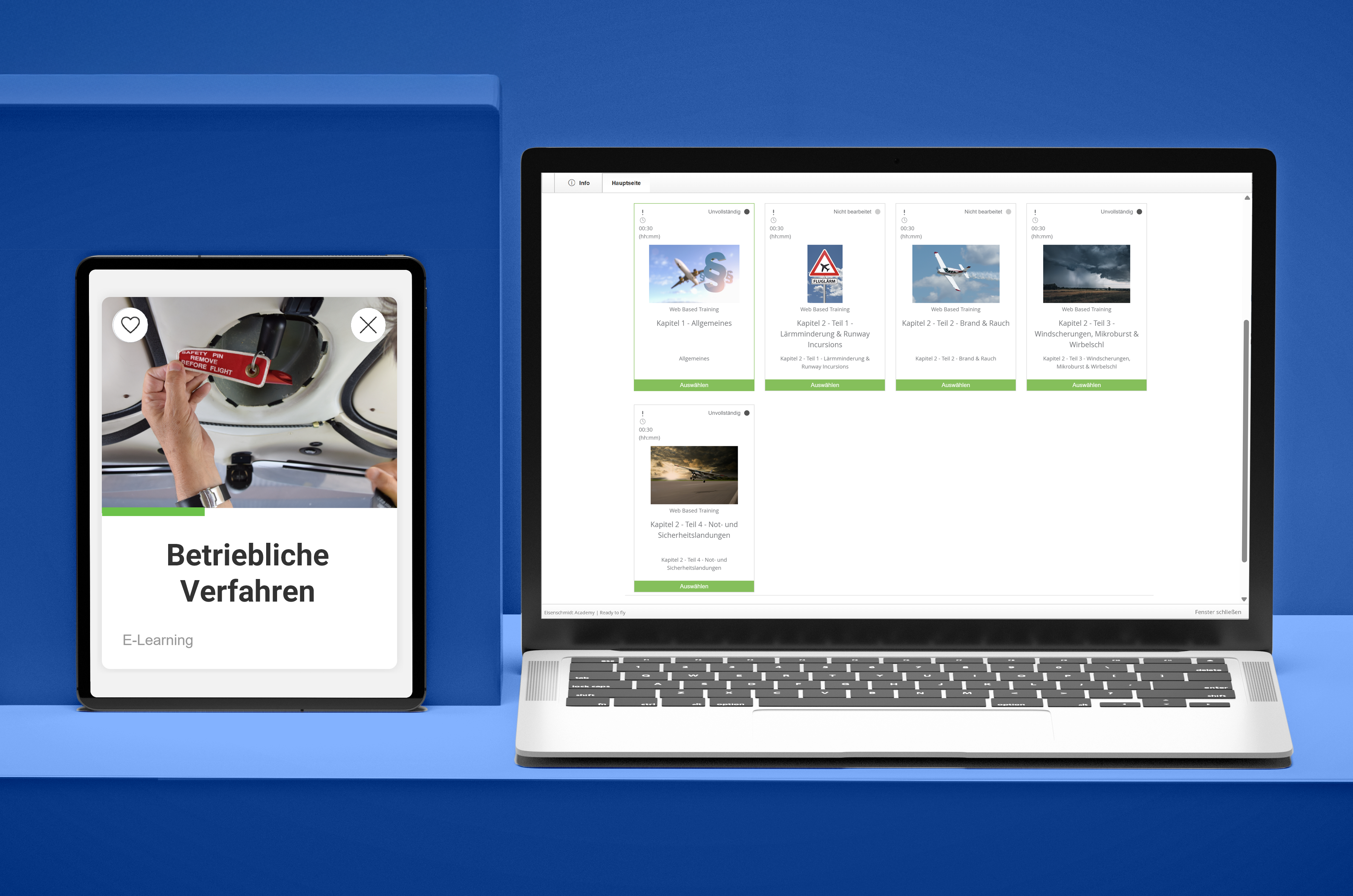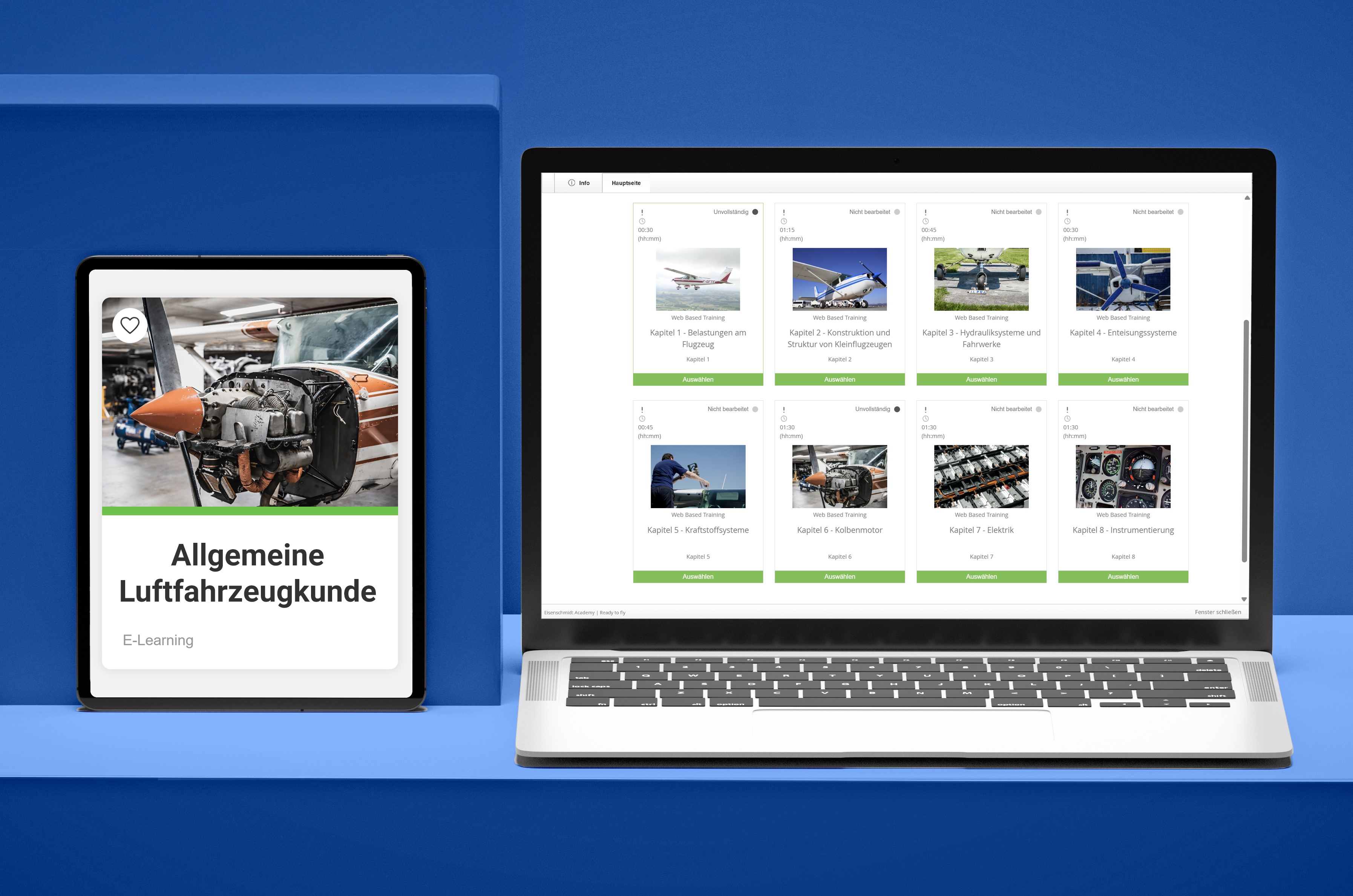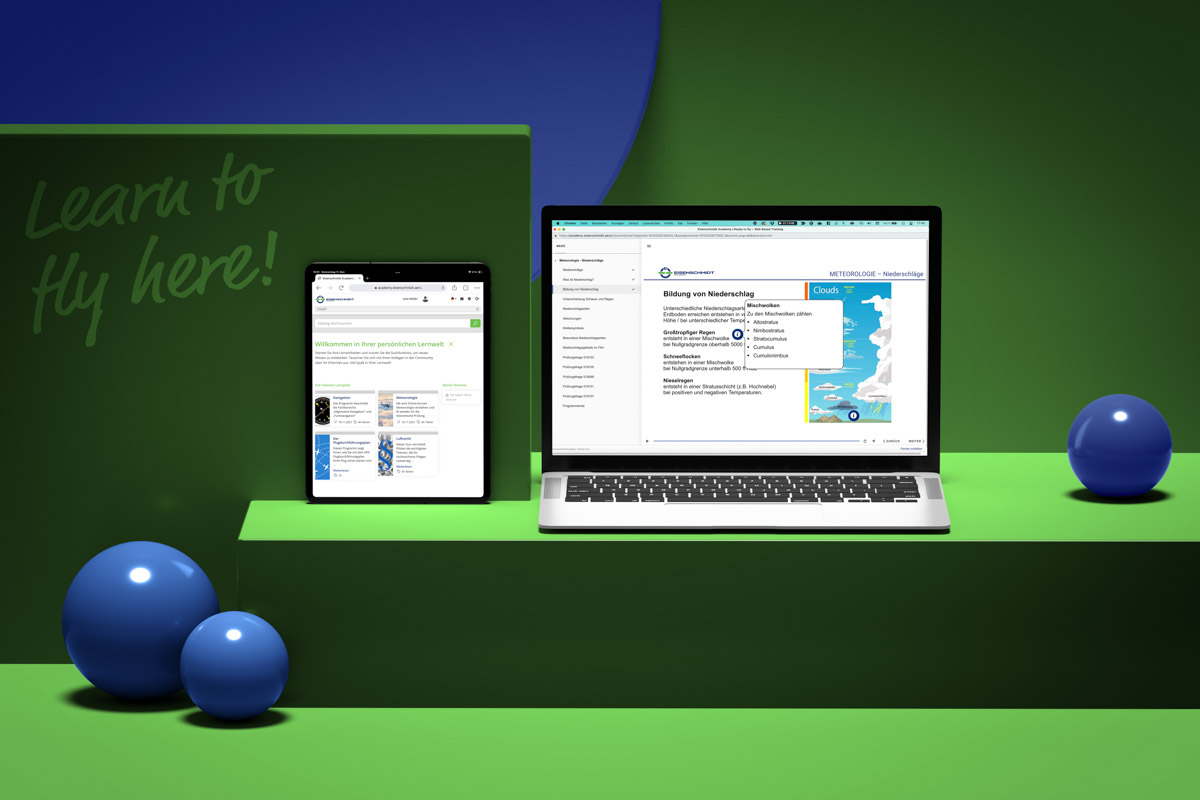Your co-pilot for theory training.
With the Pilots First Academy online platform, your flight students learn in a completely flexible, interactive and self-determined way. As a flight school or club, you can follow their progress in the platform's cockpit, leaving you more time for the essentials: the fascination of a flight!
How does it work? You can find all the relevant information here!
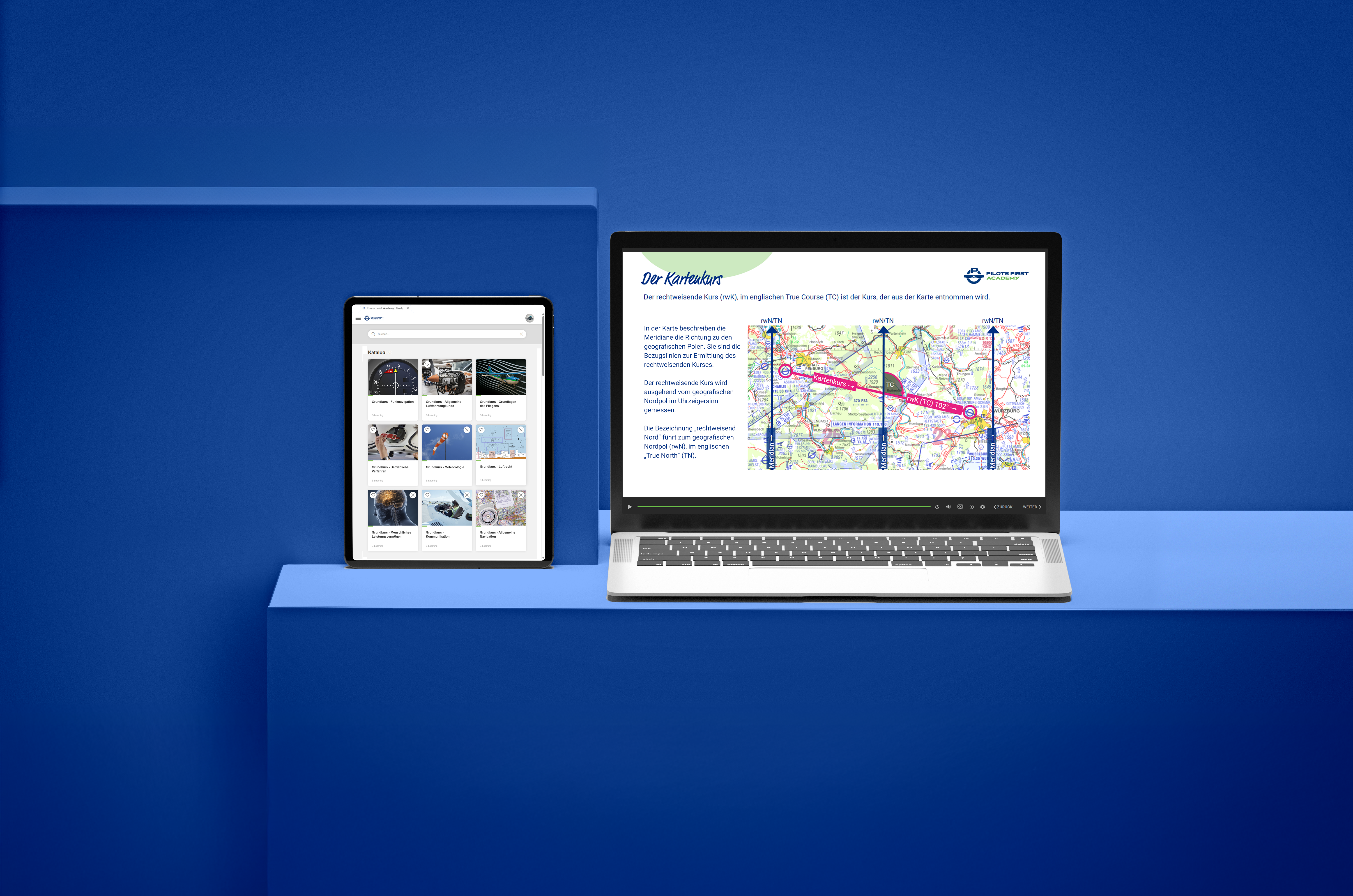
Your advantages

Enjoy freedom
You and your instructors have more time for what excites you: flying.

Constantly in contact
Questions can be recorded and answered at any time via the community.

All contents covered
The courses cover all topics according to the EASA syllabus.
1. higher motivation
Interactivity requires students to think independently and solve problems, which increases motivation
2. knowledge is consolidated
Integrated test tasks in the individual chapters reinforce and consolidate what has been learned.
3. flexible learning
Your flight students learn where and when they want and can learn at their own pace with an individual focus.
4. personal responsibility
Flexibility in the learning process encourages your students to take responsibility for their own learning.
5. Cross-device
The learning status is synchronized on all devices. An internet connection is required to use the courses.
6. Outsourcing theory
With an e-learning concept, you can partially or completely outsource traditional theory lessons.
7. More flight time
Flight instructors are not tied down by traditional frontal teaching and have more time for their passion.
8. Higher capacity
Digital learning enables you to train more student pilots.
9. No additional costs
Apart from the basic fee for e-learning including platform, there are no further costs for you.
10. Standardized training
Digital learning means that the process and content are always the same.
We are not only DTO, we are also Pilot Shop
In other words, your co-pilot on the ground. Together we can lay the ideal foundation for the training and pilot life of your student pilots. Whether you need products, information material or advice from our experts. Simply get in touch with us and we will find the right solution for you.

Our experts will be happy to advise you!
Would you like to arrange a demo appointment or do you have further questions? Then simply contact us:
mail: vertrieb@eisenschmidt.aero
phone: +49 6103 20596-0
All information compactly summarized
Would you like to show your colleagues how you can organize your theory lessons in a modern, flexible and efficient way or simply have all the important information to hand again? We have summarized all the important points compactly and clearly on four pages.



